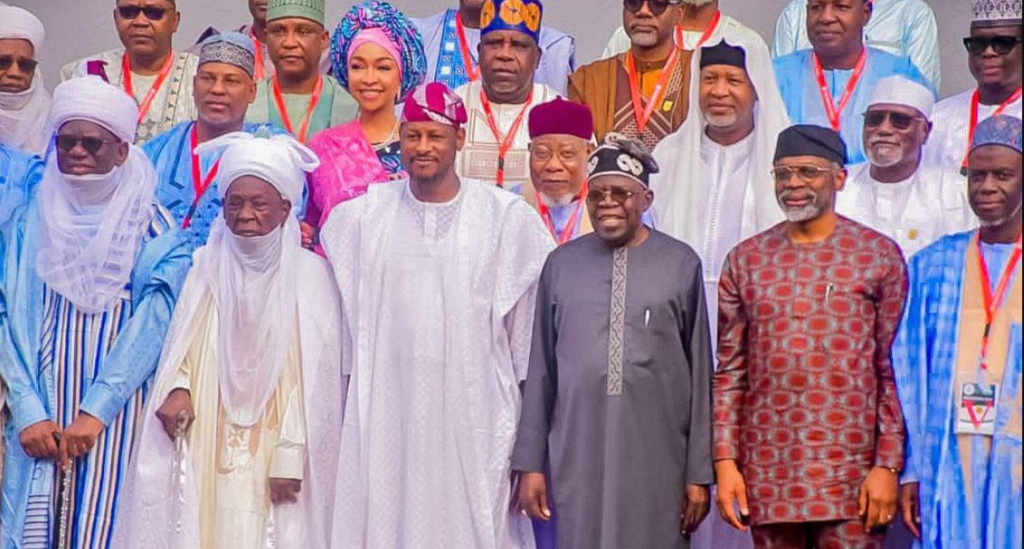The debate surrounding the establishment of a decentralized police force in Nigeria has intensified, with renewed calls from various socio-political groups, civil society organizations, and former service members urging President Bola Tinubu to expedite its implementation. This renewed push follows a recent meeting where Tinubu reiterated his commitment to devolving power to sub-national levels and bolstering the capabilities of existing security forces. While Tinubu’s administration has expressed interest in state police since its early days, the actual implementation has been plagued by delays, prompting concerns and criticisms.
Afenifere, a prominent Yoruba socio-political organization, has welcomed Tinubu’s renewed commitment, expressing hope that concrete steps towards establishing state police will be taken before the end of his term. They recall Tinubu’s longstanding support for decentralized policing and point to previous statements by government officials indicating the inevitability of state police. However, they also express frustration at the repeated deferrals by the National Economic Council (NEC) in addressing the issue, citing a lack of urgency despite escalating security challenges across the country. Afenifere calls for the National Assembly to amend the constitution and pave the way for the immediate implementation of state police.
The Middle Belt Forum echoes these sentiments, questioning the government’s sincerity in tackling insecurity given the persistent delays. They argue that the current centralized policing system is incompatible with true federalism and highlight the successful historical precedent of native authority police. Dismissing concerns about potential abuse by governors, they contend that the current federal system is equally susceptible to such abuse. PANDEF, representing the South-South region, joins the chorus, emphasizing that state police is long overdue and urging a constitutional amendment to legalize existing informal security arrangements. They argue that state police would empower governors, who are constitutionally mandated as chief security officers, to effectively address local security threats.
However, not all voices are in unison. MOSOP, representing the Ogoni people, argues that state police is not the primary solution, suggesting that addressing the root economic causes of insecurity should take precedence. They criticize the government for misplaced priorities and suggest that the push for state police is politically motivated, aimed at empowering governors ahead of the 2027 elections. Similarly, the Northern Youth Council of Nigeria labels state police a “misplaced priority,” arguing that it would exacerbate existing challenges within the security apparatus, such as underfunding and manpower shortages. They express concerns about potential abuse of power by state governors and advocate for strengthening the existing federal police force instead.
Former Commissioner of Police, Emmanuel Ojukwu, adds his voice to the critics, accusing the federal government of indecision and a lack of sincerity in addressing the issue. He alleges that the current centralized system benefits those in power and that there is a lack of political will to apprehend criminals. Ojukwu criticizes both the executive and legislative branches for their inaction, suggesting that they are merely paying lip service to security concerns. He contends that amending the constitution to allow for state police is straightforward but lacks the necessary political impetus.
Responding to the mounting criticisms, the Minister of Information and National Orientation, Mohammed Idris, defends the Tinubu administration, assuring the public that state police remains a top priority. He attributes the delays to the need to navigate political and bureaucratic hurdles and emphasizes the administration’s commitment to a multi-pronged approach to security reform. He highlights the president’s concern about the security situation and his determination to implement state police as an additional layer of security. While acknowledging the need for legislative action, Idris maintains that the government is actively working towards realizing the goal of state police. The conflicting perspectives underscore the complex and multifaceted nature of the debate, with proponents emphasizing local control and responsiveness while critics raise concerns about potential abuse and the need to prioritize strengthening the existing federal structure. The path forward remains uncertain, with the government facing pressure to demonstrate genuine commitment to addressing both the escalating security challenges and the underlying concerns surrounding state policing.














